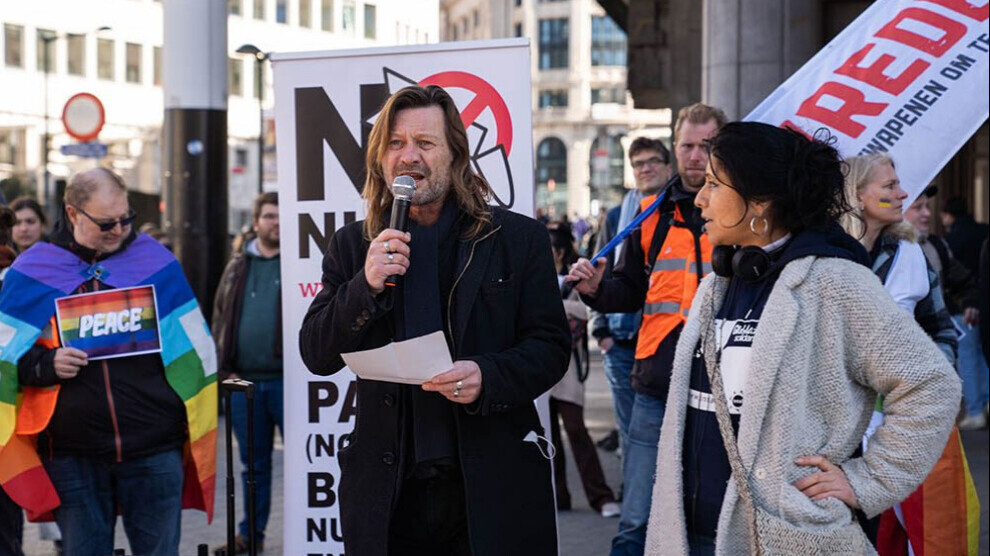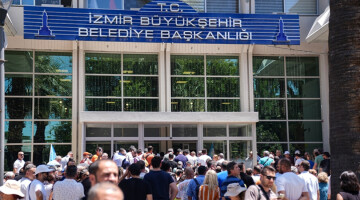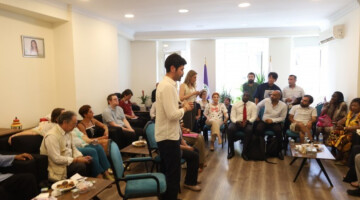Ludo De Brabander, a Belgian writer and spokesman for the Belgian peace organisation Vrede vzw, criticized the Western silence about the recent Turkish invasion in South Kurdistan in an article he wrote on Tuesday.
De Brabander’s article titled “Western silence about yet another Turkish invasion in northern Iraq” published on Vrede.be website raised concern over the invasion attacks of the Turkish state launched on April 17 in South Kurdistan and Rojava.
The Belgian peace activist pointed out that Ankara has been advocating the installation of a 30 km deep buffer zone in Northern Syria for several years.
De Brabander remarked that the severe economic crisis in Turkey and the decreasing public support for the AKP government have also played a role in the initiation of the most recent invasion attacks. He emphasized that “The Turkish government promotes nationalism based on neo-Ottomanism in North and East Syria and South Kurdistan under the pretext of war on terror.”
De Brabander also stated that the Turkish state aims to revise the 1923 Lausanne Treaty, writing; “Turkey has a long tradition of military occupation against Northern Iraq, dating back to 1983. The Turkish army has violated Iraqi territory dozens of times. It has conducted eight different 'Claw' operations since mid-2019 and has most recently introduced Operation 'Claw-Lock', which has been going on for over two weeks now. Although the Iraqi government has repeatedly protested the violation of its territory, Turkish military operations continue, and the Turkish army is establishing military bases there.”
“In 2020, a Turkish government agency released a map showing the locations of 38 military bases and outposts in northern Iraq, where thousands of Turkish soldiers were deployed without permission from the Baghdad government. Last year in May, Turkish Defence Minister Hulusi Akar visited a Turkish military base at Bilic Hill, northern Iraq during one of the ongoing operations against the PKK. Outraged by the visit, the Iraqi Deputy Foreign Minister summoned the Turkish diplomatic envoy in Baghdad to express discontent about the Turkish minister's presence in Iraq.”
“A similar scenario is being introduced in Syria,” De Brabander said, adding that “Turkey, together with Islamist militias, has invaded the northern part of the country three times since 2016.”
De Brabander also recalled the Afrin invasion in 2018, saying; “In 2018, Turkish troops invaded Afrin and carried out ethnic cleansing there. It's time now to do the same thing in a long border area between Tal Abyad (Girê Spî) and Ras al-Ayn (Serêkaniyê), occupied in 2019.”
The Belgian writer pointed out that the recent escalating attacks against the Syrian Democratic Forces (SDF) are an indication that Turkey will stick to the "buffer zone" plan. “By accelerating its violent attacks in Syria and Iraq, Ankara is taking advantage of the war in Ukraine which requires Russian troops to put a lot of effort and keeps Western media and politics busy,” he wrote.
“Turkey has closed its airspace to Russian flights in Syria. This complicates Russian military support to Damascus. Turkey may want to increase the pressure on Moscow to give the green light to Turkey's plans to control the entire northern border region.
NATO and the European Union remain silent. This is in contradiction with the hawkish language and measures taken against Russia because of the war in Ukraine. However, in both cases, it is a question of international attack against a sovereign country and a violation of the UN Charter. Turkey is an important member of NATO. Located in Russia's South, Turkey bridges over the oil and gas-rich regions of the Middle East and Central Asia. Turkey also maintains good relations with the conservative Kurdish Barzani tribe, which governs northern Iraq. Most of the oil from the Kurdish region is marketed through pipelines to Turkey. Ankara is currently working hard to import gas from the Kurdistan Regional Government of northern Iraq as well. Thus, Turkey can improve its political and economic relations with Europe, which wants to get rid of its energy dependence on Russia as soon as possible.
Turkey started negotiations with Israel for gas transportation from Iraqi Kurdistan to Europe. Both countries have started talks over the construction of an underwater pipeline to transport gas from Israel's largest high-sea gas field, Leviathan, to southern Europe via Turkey. Turkey seems to make itself an indispensable country in supplying much-needed extra gas in order to avoid Western criticism against its invasion attempts in Iraq and Syria.”












